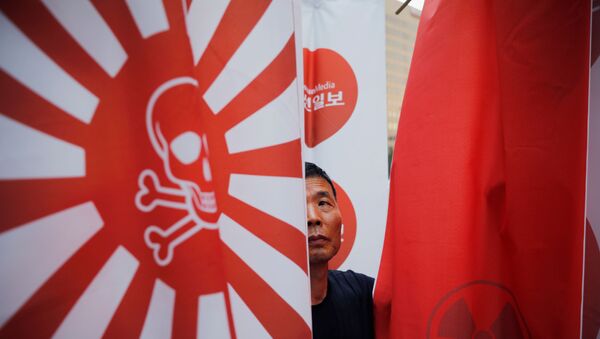"We will closely manage the situation to make sure that the negative economic impact is minimized under all circumstances," Hong Nam-ki said, as quoted by the Yonhap news agency.
The minister added that it was difficult to forecast how Tokyo would respond to Seoul's recent move.
"From an economic perspective, difficulties and uncertainty may not be easily cleared away, depending on how Japan reacts over the decision to terminate the military pact. It is difficult to predict how things will play out," Hong stressed.
On Thursday, Seoul said it would not renew the pact, known as the General Security of Military Information Agreement (GSOMIA), which was signed in 2016 amid a series of nuclear and missile tests by North Korea.
Relations between Japan and South Korea took a turn for the worse after the latter's top court ruled that a number of Japanese companies could be sued for their use of forced labour during World War II. Japan has protested the decision, claiming that the 1965 agreement between the two countries had resolved the issue of damages once and for all.
On August 2, Tokyo made a decision to stop treating Seoul as a trusted trade partner, implementing stricter customs procedures for a total of 1,194 items exported to South Korea.
The GSOMIA allowed both countries to directly exchange classified information.

